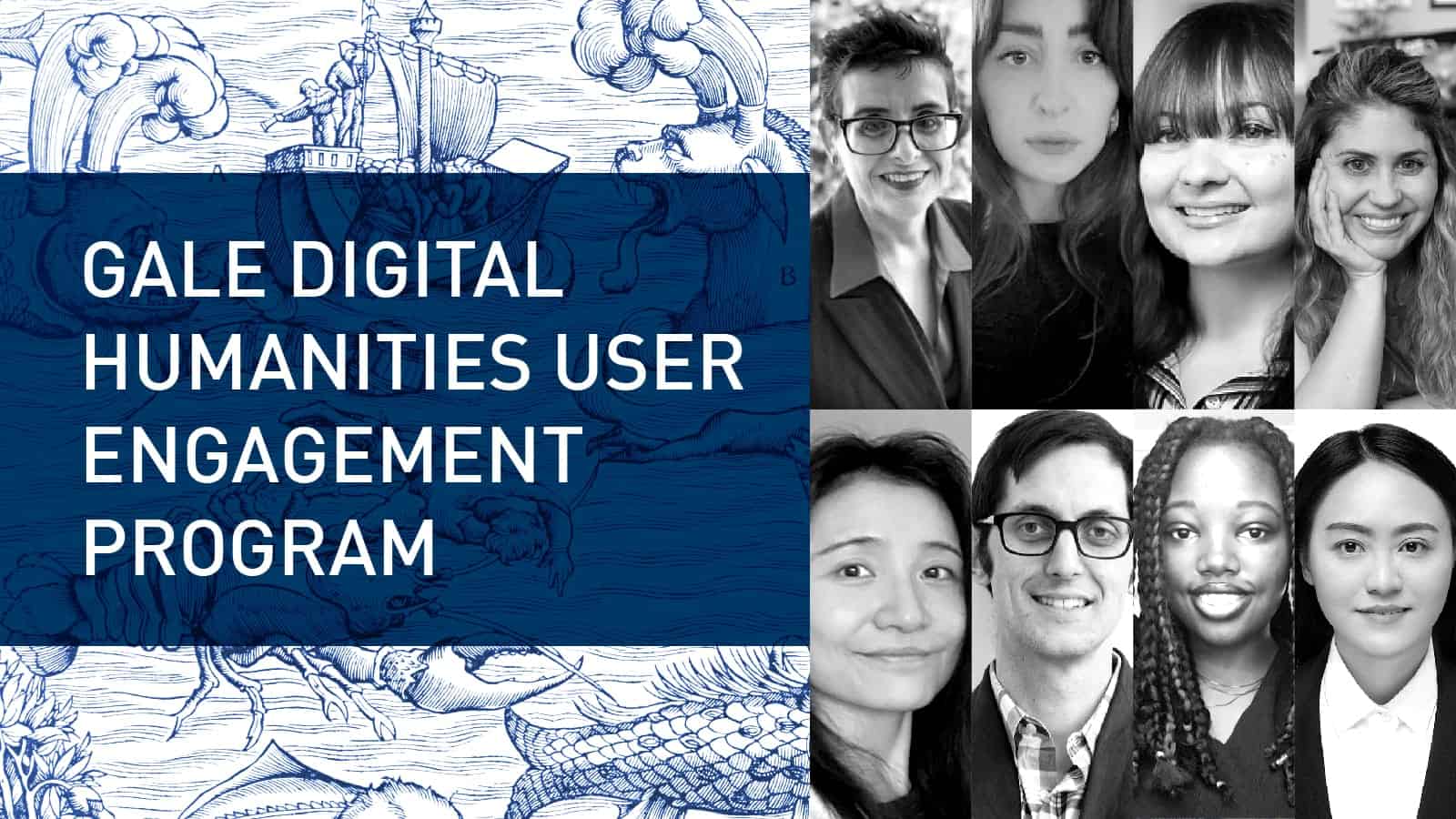|By Becca Bowden, Gale Digital Scholar Lab Product Manager|
Gale is pleased to announce its second ‘Gale Digital Humanities User Engagement Program’. Following on from the success of the program in 2022, we are excited to invite eight new Gale Primary Sources and Gale Digital Scholar Lab users to collaborate closely with the Digital Humanities production team at Gale. The members of the Digital Humanities User Engagement Program will provide feedback throughout the product development process, keeping the voice of the researcher at the center of the product experience.
What is the Gale Digital Humanities User Engagement Program?
The Gale Digital Humanities User Engagement Program connects our users directly with our product development process. This covers researching and designing new features, through to refining and validating prototypes, all the way up to beta testing and launching new products. We want to hear feedback at all stages of development, and we hope that the program will allow us to continue centering the voices and needs of our users in everything we do.
Through the program we will be able to:
- Provide regular opportunities for instructors, students, and librarians to share their input throughout the platform development process for both Gale Primary Sources and Gale Digital Scholar Lab.
- Increase transparency of Gale’s product development process.
- Improve the user experience for Digital Humanities instructors, researchers, and students.
What did last year’s participants get up to in the User Engagement Program?
Last year’s Gale Digital Humanities User Engagement Program members were essential to product development work, allowing us to establish and refine user requirements efficiently and responsively, without delaying development. They worked closely with Gale colleagues from multiple departments, predominantly product and user experience, but also providing feedback to members of our editorial and marketing teams, thereby supporting decision making across the board.
Through interviews, surveys, focus groups and observational tasks they helped ensure the success of key new features and products, including archive migrations, such as State Papers Online and Early Arabic Printed Books; and the new Groups and Content Upload features for Gale Digital Scholar Lab. They also provided feedback on how we could improve existing features, such as our Learning Centers, and contributed to the development of upcoming features that we are still working on.
What was the selection process for this year’s Digital Humanities User Engagement Program?
For this year’s application process, we built on our experience from the previous year. Keen to include a wider geographical coverage, we encouraged our colleagues in Asia, Africa and Europe to reach out directly to their contacts, while simultaneously distributing the invitation more widely to institutions that had access to either Gale Primary Sources archives or Gale Digital Scholar Lab.
The process consisted of an application via survey, from which we selected a shortlist of candidates to invite to interview. We received over 180 applications, of which 17 were interviewed, with 8 being ultimately selected to join the program. We had an incredibly high standard of candidate, so this process was incredibly difficult for the entire Gale Digital Humanities team!
We’re excited to welcome this year’s Gale Digital Humanities User Engagement Program cohort onboard and look forward to begin working with them!
Meet our Digital Humanities User Engagement Program Members for 2023-2024:
Internal Gale Staff
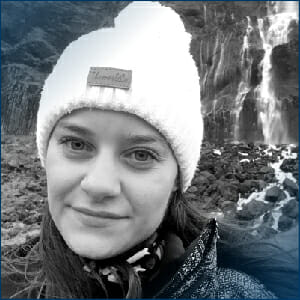
Becca Bowden
Becca Bowden is the Product Manager for Gale Digital Scholar Lab. Based in the UK, she started her career at Gale working in the Gale Primary Sources editorial team before taking on Gale Digital Scholar Lab in January 2022. She is loving exploring the world of Digital Humanities and is excited to work with the Digital Humanities User Engagement Program to continue developing Gale Digital Scholar Lab.
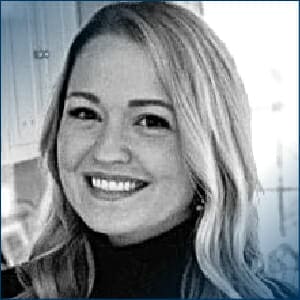
Megan Sullivan
Based in Gale’s main office in Michigan, Megan Sullivan is the Product Manager for Gale Primary Sources. With a background in Library Science, she has a strong personal interest in her work with digital archives and is excited about the User Engagement program because she strongly believes that user-centered development is the key to a positive user experience.
The Program Members
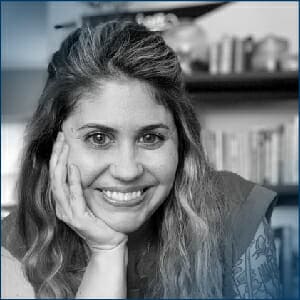
Elizabeth Hopwood
Dr. Elizabeth Hopwood is an Advanced Lecturer in the Department of English at Loyola University Chicago, where she is the Director of the Center for Textual Studies and Digital Humanities, and Graduate Program Director of Loyola’s Master’s in Digital Humanities program. Her research focuses on long nineteenth-century foodways in the space of the U.S. and the Atlantic, digital archives, and digital humanities design.
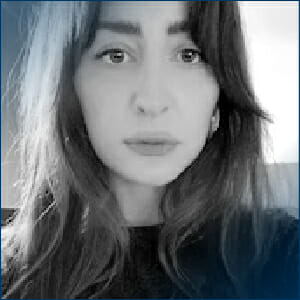
Nell Nixon
Nell Nixon is a 2nd year PhD student doing a CDP with Loughborough University and the British Library. Her research within digital humanities considers how to mitigate barriers to digital learning in the cultural heritage sector experienced by disadvantaged young people. As such, she is excited about expanding her knowledge and experience in developing effective digital learning resources.
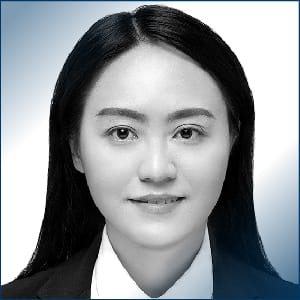
Wei Wang
Wei Wang is an Associate Professor in World History at Nankai University, in Tianjin, China. She has been working on Chatham House’s role in the planning for post-Second World War world order. Her research and teaching rely heavily on Gale Primary Sources, particularly Chatham House Online Archive. She is excited to be part of the program, and is looking forward to working with her cohort members.
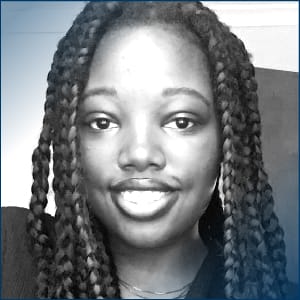
Ayanda Netshisaulu
Ayanda Netshisaulu is an educational facilitator at the University of Johannesburg in South Africa. Her research interests are South African environmental history, colonial environmental management and human organisation and its interaction with nature.
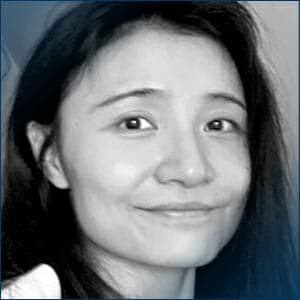
Fudie Zhao
Fudie Zhao is a DPhil candidate in the Faculty of Asian and Middle Eastern Studies at the University of Oxford. With a background in both East Asian history and digital humanities, her research delves into the circulation of information in East Asia during significant historical events. Fudie has also developed and taught a graduate seminar on Digital Humanities for East Asia at Oxford, bridging traditional historiography with digital tools.
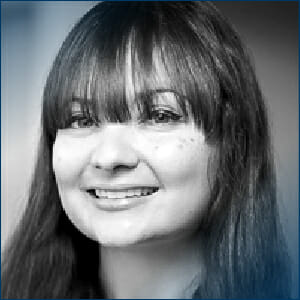
Ava Brillat
Ava Brillat was previously DH Librarian at the University of Miami. She is interested in lowering the bar for students to access DH tools and make DH more accessible to students, faculty and librarians.

Joe Drury
Joe Drury is an Associate Professor of English at Villanova University, although he grew up in the UK. His research is on eighteenth- and early nineteenth-century British literature, with a particular focus on novels, the history of science and technology, and the history of gender and sexuality. He published a book with Oxford University Press in 2017, Novel Machines: Technology and Narrative Form in Enlightenment Britain. His new research is about the invention and history of “the whimsical” as an aesthetic category in the eighteenth century, its relation to the rise of consumer culture and changing ideas about subjectivity in the period. He is looking forward to learning more about Gale’s primary sources and Gale Digital Scholar Lab.
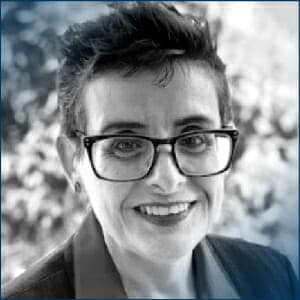
Annemarie Perez
Dr. Annemarie Perez is an Assistant Professor of Interdisciplinary Studies. She is a native of Los Angeles and passionately interested in the literature and culture of Southern California, detective fiction, and Harry Potter. Her academic interests include digital humanities and digital pedagogy work and its intersections and divisions with ethnic and cultural studies. Her specialty is Latina/o literature, with a focus on Chicana feminist writer-editors from 1965-to the present. She has received fellowships from the Ford Foundation and Irvine Foundation. She is currently writing a book on Chicana feminist editorship. This single authored book addresses questions about late twentieth century Chicana authorship and editorship, using textual readings and interviews to explore the evolution of editorship and the development of textual communities within and around the development of Chicana feminist praxis.
If you enjoyed reading about the second Gale Digital Humanities User Engagement Program, you may like:
- Introducing the Gale Digital Humanities User Engagement Program
- Re-imagining Assignments in the DH Classroom: StoryMaps
- Understanding Recent Enhancements to Sentiment Analysis in Gale Digital Scholar Lab
- ECCO’ing through the Ages: Exploring Reception with Gale’s Eighteenth Century Collections Online
- Digging into Datasets in Gale Digital Scholar Lab

